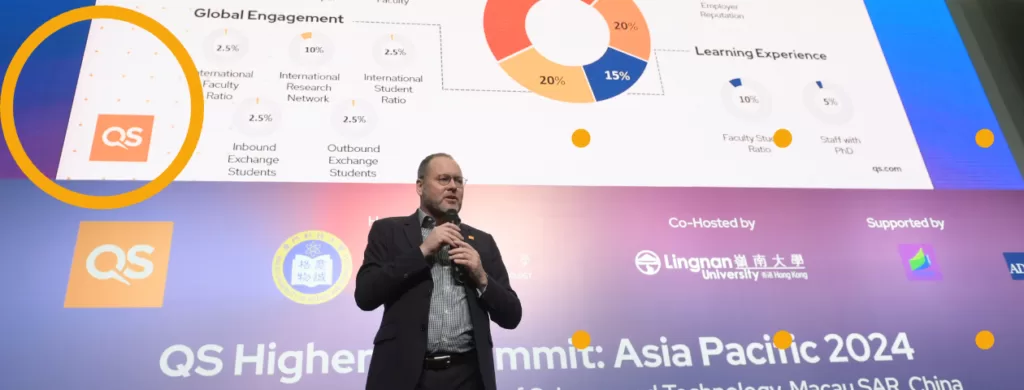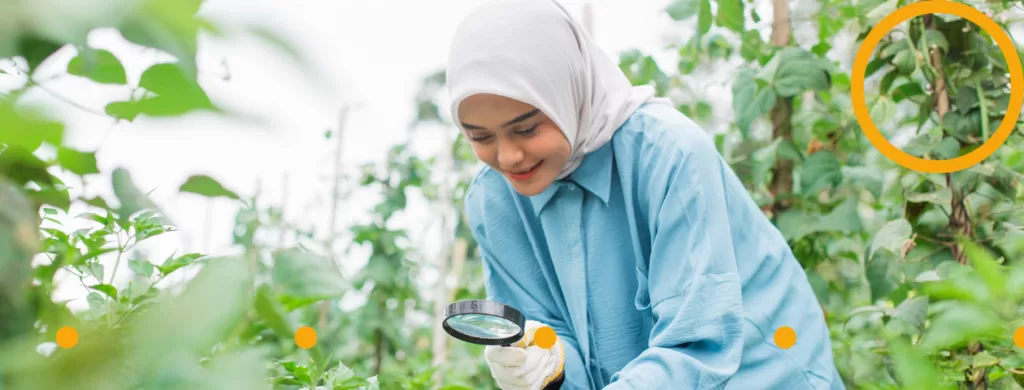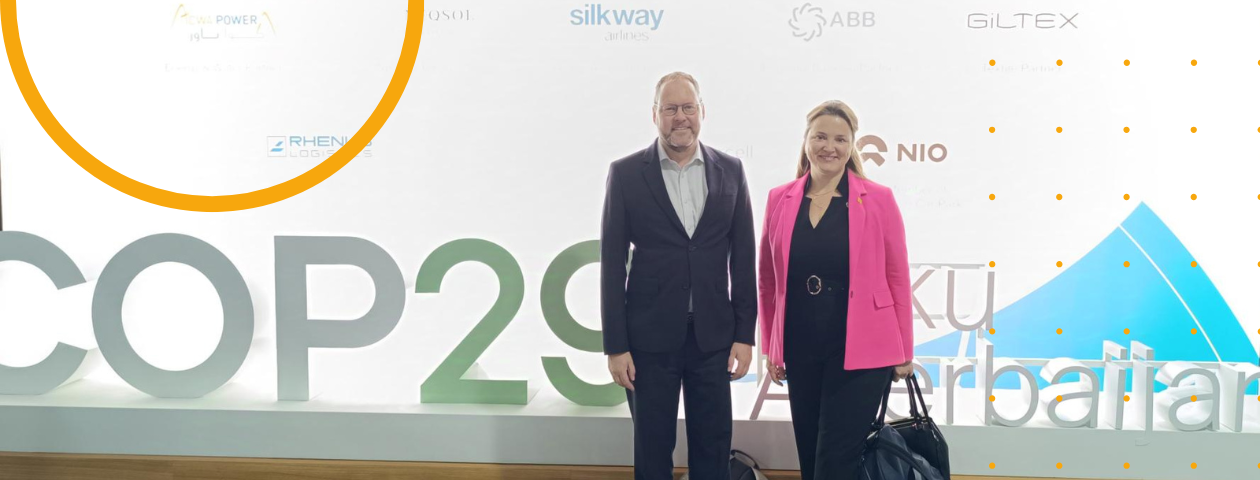
COP29 brings leaders, experts, researchers and the eyes of the world to focus on one of the world’s most pressing goals: Action on climate change.
Crucial talks explored the gamut of sustainability and the UN’s Sustainable Development Goals (SDGs), but one prevalent theme was the role education plays in driving change. During Education Day on 18 November, QS led a range of education-focused activities in partnership with Azerbaijan’s Ministry of Science and Education and State Agency for Science and Higher Education.
What makes a university sustainable?
In a session, chaired by QS Senior Vice President, Ben Sowter, panellists explored what it takes to run a sustainable university, and what impact higher education can have in the fight against climate change. On the panel, we welcomed:
- Ulker Sattarova, Director of State Agency for Science and Higher Education, Azerbaijan
- Stuart Brocklehurst, Deputy Vice-Chancellor, Business Engagement and Innovation Director, Green Futures Solutions, University of Exeter
- Christine Ozden, Global Director, Climate Education, Cambridge University Press & Assessment
- Matteo Vittuari, Full Professor of Agricultural and Food Policy, Department of Agricultural and Food Sciences, University of Bologna; Dean, School of Agricultural and Food Science, ADA University
Panellists identified well-considered sustainability leadership as a key factor in making a university more sustainable, with Ozden saying, “Many organisations are at the start of their sustainability journey. Where does leadership sit in a university? Is it a separate function or a whole organisation approach is a question that needs answering.”
Sattarova put it succinctly: “Setting up a sustainability policy is not enough. Leadership in execution is key.” Panellists also highlighted that the connection between strategy and planning teams is important for effective sustainability initiatives.
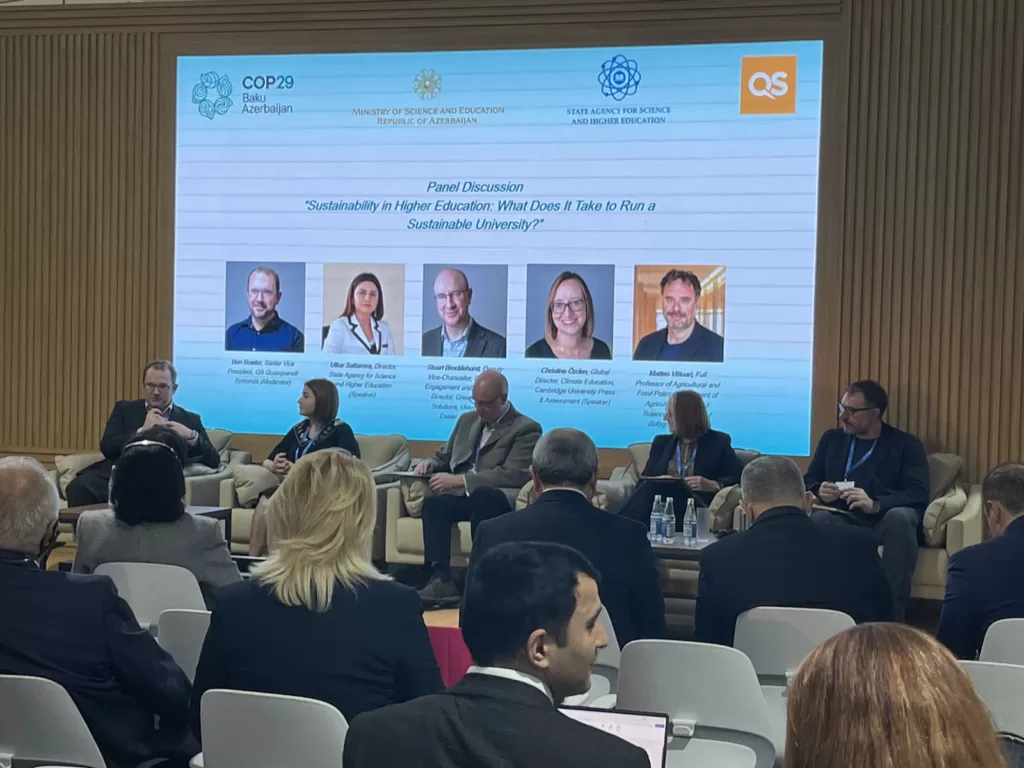
Also discussed was the value of universities and university partnerships in the fight against climate change. Ozden told the audience: “It’s often said that universities are not doing enough, but they put the ‘science’ in ‘climate science.’” Vittuari mentioned the value of research in informing and pushing climate action forward. “In the last ten years,” Vittuari said, “there has been a shift towards social impact, not just pure research.”
“The climate crisis is global. The internationalisation of higher education allows us to learn from different backgrounds.“
Christine Ozden, Global Director of Climate Education at Cambridge University Press & Assessment
Student-centric initiatives
Future17 was also on the panel’s agenda. Future17 connects students with global and local organisations to develop actionable solutions that address the UN SDGs.

Brocklehurst, from the University of Exeter who partners with QS to deliver Future17, said, “Today, a hundred of Exeter students participate in real-life projects every year, contributing to impactful projects worldwide. It can be an NGO in India working on refillable bottles to reduce plastic pollution, or a company developing SDG-related materials for teachers at Kazakhstan’s public schools. At least 30% of students get internships after the programme, discovering sustainable careers across different industries.”
We are also delighted that the Azerbaijan State University of Economics (UNEC) has joined the Future17 consortium of universities – the first from Azerbaijan.
For many students, a greener campus matters more than a high ranking
We also shared some insights into students’ perspectives on sustainability. In our recent QS Sustainability Student Survey, we found that:
- 48% of students prefer a sustainable university over one ranked in the top 100
- 68% of students prefer a sustainable university over one ranked in the top 500
- 78% of students prefer a sustainable university over one ranked in the top 1,000
33% would be willing to spend more on their education if it means an increase in sustainability.
Sustainability is important to students, and it’s becoming increasingly important to businesses. Between 2017 and 2023 there has been threefold growth in green skills needed in the job market (QS 1Mentor).
A preview of the QS World University Rankings: Sustainability 2025
With COP29 being hosted in Azerbaijan, we also took the chance to preview the QS World University Rankings: Sustainability 2025 results and showcase Azerbaijan’s university performance.
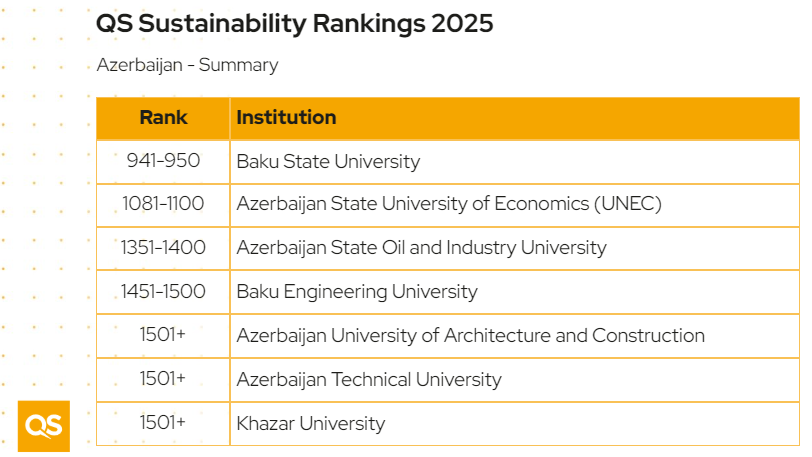
Finally, we gave a sneak preview of some of the trend data we’ve seen with the QS World University Rankings: Sustainability 2025. The full results will be launched at QS Reimagine Education on 10 December. Join us in London.
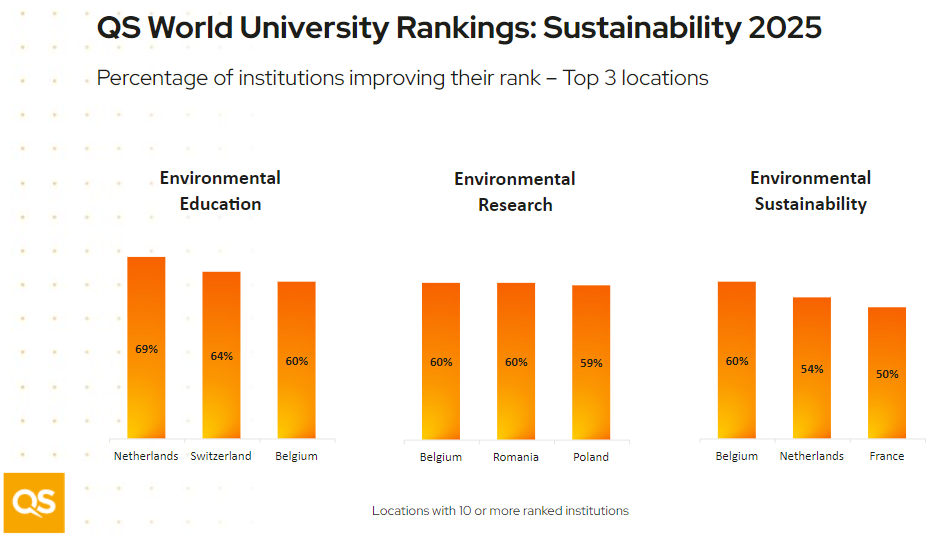
Want to be the first to receive QS insights?
